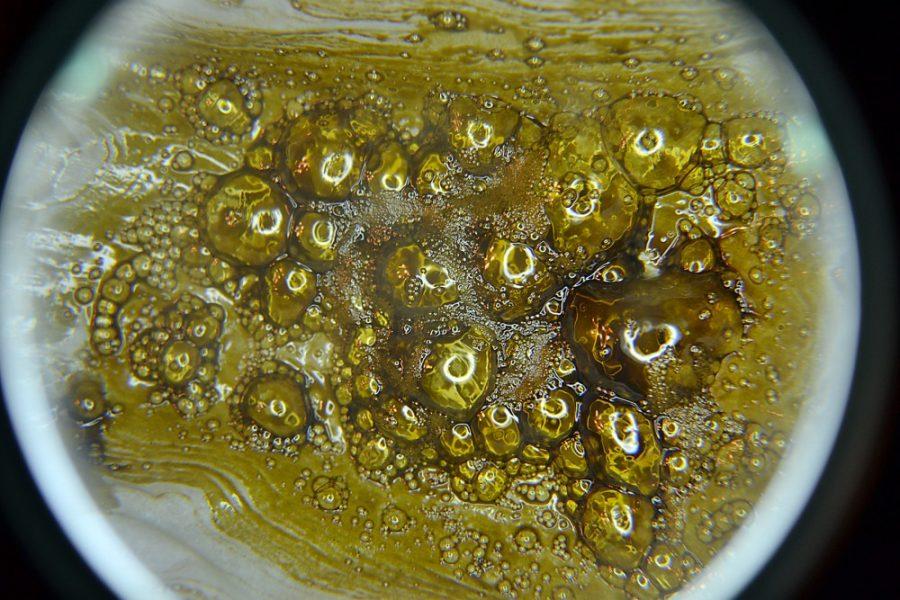A piece of titanium is blasted by a 3500 degree Fahrenheit propane torch until it glows bright red. A piece of a wax-like substance is dunked into it, vaporizing instantly. As the smoke goes through the bubbler and the person smoking inhales the thick white gas, the effects are felt almost instantly.
Wax, dabs, globs and chunks are words many marijuana consumers use to describe an ultra-concentrated form of cannabis that is making waves among the community of pot users. The most common of these is butane hash oil, which is made by running butane through cannabis buds.
However, many other solvents can be used as well.
“You can use anything, really: butane, propane, CO2, pretty much anything as long as it’s non-polar. Butane is the most common because it’s easy to purge out,” said Steve, a man who makes BHO illegally for recreational users.
The dangers involved in making these bootleg products are real. For example, butane is highly flammable, and if used indoors can cause fires and explosions.
In addition, oftentimes the illegal product is not made properly and some solvent is left behind, which is then consumed by the smoker. In other states, where these concentrates are legal, producers use gas chromatography to determine if there are any solvents left behind.
Steve admits that when he first started making BHO, he had no idea what he was doing.
The health risks of long-term butane exposure from poorly made BHO are not yet fully known; however, overexposure while making BHO is a real concern.
“Afterwards, I’ll notice it,” said Steve. “My hands will be shaking, dude, and I’ll have a wicked headache.”
Exposure to butane increases the risk of sudden death according to the U.S. National Library of Medicine.
There are many concerns about the extremely large amounts of cannabinoids, the psychoactive, that are extracted, as it enables users to consume a lot of the psychoactive substances very quickly.
Due to the lack of research on the subject because of federal law, no one really knows the health effects of long-term use of such high concentrations of THC, the most common psychoactive substance in marijuana.
“With extracts, you can put hash or whatever into one of those e-cig type devices, but then you can go nuts with it and not know when to stop,” said Mohit Asnani, a graduate of the Eller College of Management who helped found several dispensaries, including the Downtown Dispensary. “I think edibles are a lot better at dosing.”
Opinions differ in the medical marijuana community over whether these concentrates can be effective medicines. As of right now, it is illegal for any dispensary to carry or sell these concentrates in Arizona. Before Proposition 203 — also known as the Arizona Medical Marijuana Act, the medical marijuana proposition that passed in 2010 — some dispensaries were carrying these concentrates, but they stopped to comply with the law.
“The Department of Health is looking at cannabis as something that has plant matter,” Asnani said. Oftentimes these concentrates don’t have any plant matter in them because of the process by which they are created, which leaves only cannabinoids.
Kyle Heppler, who is a grower at Earth’s Healing Dispensary in Tucson, has mixed opinions on the efficacy of these concentrates. “When you use butane or whatever to make these concentrates, oftentimes you only get the THC and you leave behind a lot of other cannabinoids, you know, CBD, CBN, CBC, that provide a lot of the benefits from medical marijuana,” Heppler said.
However, some people prefer these concentrates because they contain less plant matter so there is less smoke to inhale, and therefore less damage to the lungs. This is seen as a big advantage to many recreational users, as well as medical users.
In the end, it comes down to personal preference.
“You have your buds; that’s a natural process,” Asnani said. “All these other things, concentrates, hash oil, bubble hash — that’s a chemical process that someone’s doing.”









